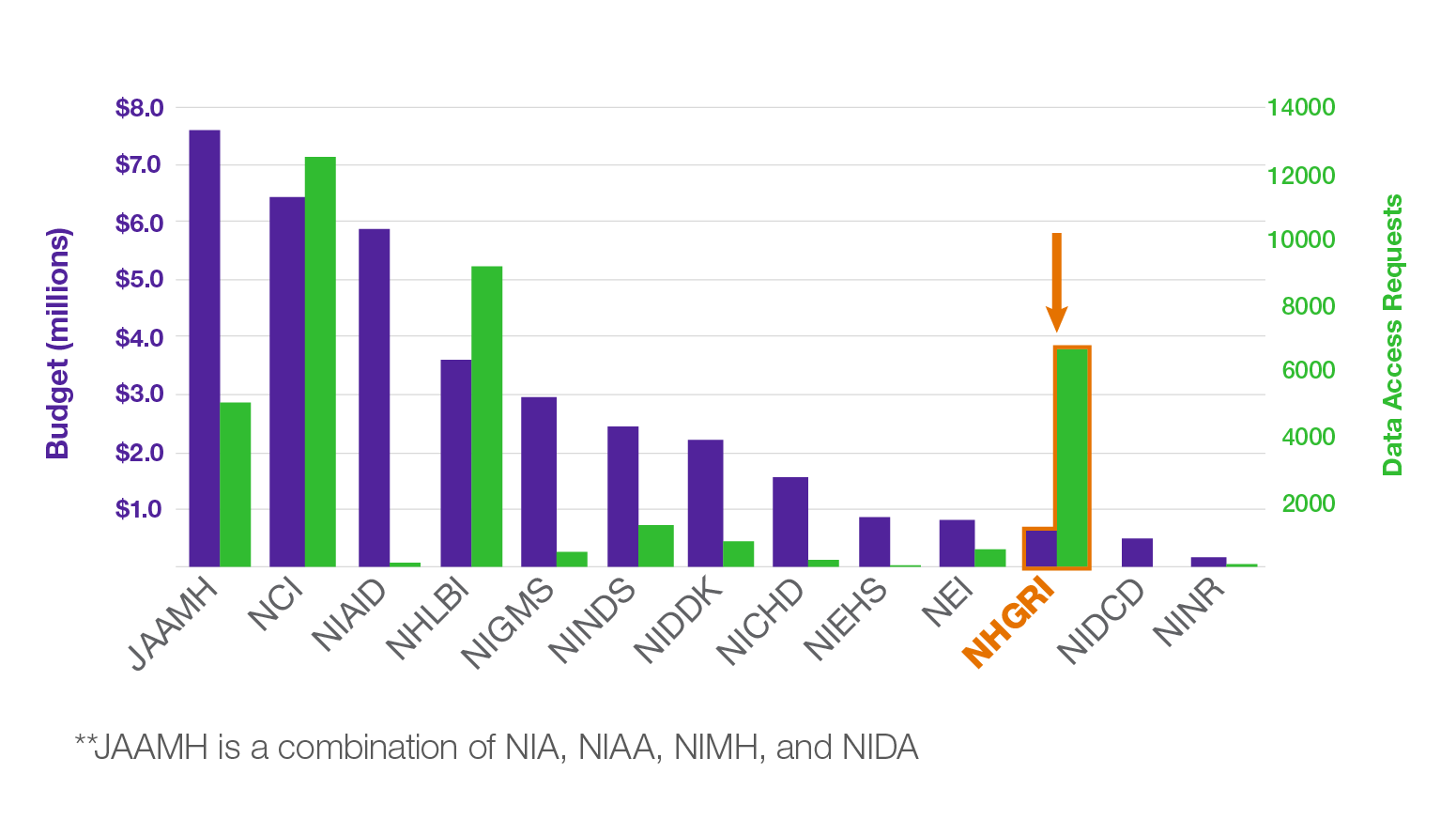Valentina Di Francesco appointed founding director of NHGRI Office of Genomic Data Science
While we are all working hard to bring an optimistic outlook to the new year, 2021 ended on a somber note. The Omicron SARS-CoV-2 variant dampened efforts to put the COVID-19 pandemic behind us, and the genomics community lost one of its shining stars — Debbie Nickerson — on Christmas Eve. I had known and admired Debbie for more than three decades, starting before the launch of the Human Genome Project. She was a cherished NHGRI grantee, advisor, and friend — she will be sorely missed. I encourage you to read the University of Washington’s obituary for Debbie, which can be found here.
At NIH, we start 2022 under a continuing resolution (CR), which has the government operating through February 18, 2022. While we look forward to the approval of an official federal budget for Fiscal Year 2022, the CR allows NIH to operate at a budget level at or below the federal budget for Fiscal Year 2021. This allows NIH to continue to fund ongoing research at grantee institutions and maintain operations within its Intramural Research Program. Meanwhile, Francis Collins, M.D., Ph.D., has stepped down as the NIH Director, and Larry Tabak, D.D.S., Ph.D., is now serving as the Acting NIH Director. Dr. Tabak had served as the Principal Deputy Director since August 2010.
As we move into 2022, stay safe and healthy!
All the best,
![]()
In This Issue
- Valentina Di Francesco appointed founding director of NHGRI Office of Genomic Data Science
- Another odometer moment: the 100th issue of The Genomics Landscape
- NHGRI marks first anniversary of the action agenda for enhancing the diversity of the genomics workforce
- NHGRI funding opportunities support transformative nucleic acid sequencing technology development
- NIH seeks input on potential updates to the NIH Genomic Data Sharing Policy
- Francis Collins assumes full-time role as NHGRI senior investigator
Genomic Data Sharing Spotlight
Data sharing is central to the field of genomics. Both human and non-human genomic data have been widely shared through public data resources, such as the database of Genotypes and Phenotypes (dbGaP), model organism databases (e.g., Mouse Genome Informatics and Xenbase), and cloud repositories [e.g., the NHGRI Analysis, Visualization, and Informatics Lab-space (AnVIL)], among others. Data sharing amplifies the impact of research participants’ specimens, increases the power of scientific investigation by allowing genomic data to be combined across studies, and accelerates the pace of discovery by increasing the impact of a single dataset. Over the next year, NHGRI will highlight some interesting facts and stories about how our research community has been at the forefront of data sharing. For example, did you know that although NHGRI is one of the smallest NIH institutes by budget, it ranks #3 in total number of Data Access Requests (DARs) for secondary use of genomic data (see figure)?

About The Genomics Landscape
A monthly update from the NHGRI Director on activities and accomplishments from the institute and the field of genomics.
Last updated: January 13, 2022






